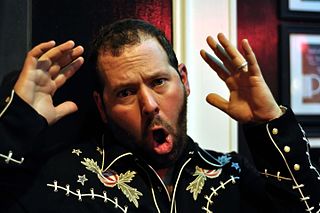A Quote by Trevor Paglen
What I thought was fascinating about comparative religion was that these were the stories that humans have told themselves about where they come from, who they are and where they're going, and what it means to be alive on the planet.
Related Quotes
Each of us is comprised of stories, stories not only about ourselves but stories about ancestors we never knew and people we've never met. We have stories we love to tell and stories we have never told anyone. The extent to which others know us is determined by the stories we choose to share. We extend a deep trust to someone when we say, "I'm going to tell you something I've never told anyone." Sharing stories creates trust because through stories we come to a recognition of how much we have in common.
We’re turning everything on the planet into food for humans so we’re cutting down the rainforests, displacing all of the animals, and we’re doing all this to feed humans... ... Imagine if there were only 2 billion people polluting? We’re already overpopulated. I feel we’ve become a parasite on this planet. If this population keeps growing, we’ll just keep devouring the planet, and I don’t think it’s going to stand for that very long.
For a time it seemed inevitable that the surging tide of agnosticism and materialism would sweep all before it. There were those who did not dare utter what they thought. Many thought the case hopeless and the cause of religion lost once and for ever. But the tide has turned and to the rescue has come - what? The study of comparative religions. By the study of different religions we find that in essence they are one.
I thought I could capture the stories of the city on paper. I thought I could write about the horrors of the city. Horror stories you see. I tell you I didn't have to look far for material. Everywhere I looked, there were stories hidden there in the dark corners. . . . I wrote and still there were more. . . . No one would publish them. 'Too horrible,' they said. 'Sick mind,' they said. I thought I could write about the horrors of the city but the horror is too big and it goes on forever.
I don't think that there's a target audience at all. These stories were in circulation. The stories were told by men, told in the marketplace by men, but also behind doors by women, but there's no real record of this. It's likely they were told by women to children in their interior rooms. The story could be a negative story, they could be presented as a, "Watch out! Women will get round you, do things to you, weave you in their toils." It could be buried in it an old cautionary story about women and their wiles.
Thirty years ago, if you said the country was living beyond its means, people would have thought about economics. Now, if you talk about the country, or the planet living beyond its means, you think about the environment. We are taking out more than we are giving back. We are consuming energy, water, and other natural resources in a way that is leading to huge and often irreversible damage to the planet. So too are most other developed nations. And so too will China and India if they follow the same path of economic development as us
When I began going to school and learned to read, I encountered stories of other people and other lands. In one of my essays, I remember the kind of things that fascinated me. Weird things, even, about a wizard who lived in Africa and went to China to find a lamp... Fascinating to me because they were about things remote, and almost ethereal.
People can't live with themselves much longer. The planet cannot live with humans much longer! We have the weaponry, destruction of the planet, pollution, destruction of forests, countless manifestations of humans using their intelligence in the service of the dysfunction, the madness. It's a strange juxtaposition. Humans are intelligent, but if you look at history or even watch TV, they're also incredibly stupid.
Alice and I, we'd met before, but we were able to kind of sit and chat on the set of Dark Shadows, and talk about maybe writing some songs together. We started doing that, and then one thing led to another and it became this Vampire project - because he was telling stories about all those days, which were fascinating.








































